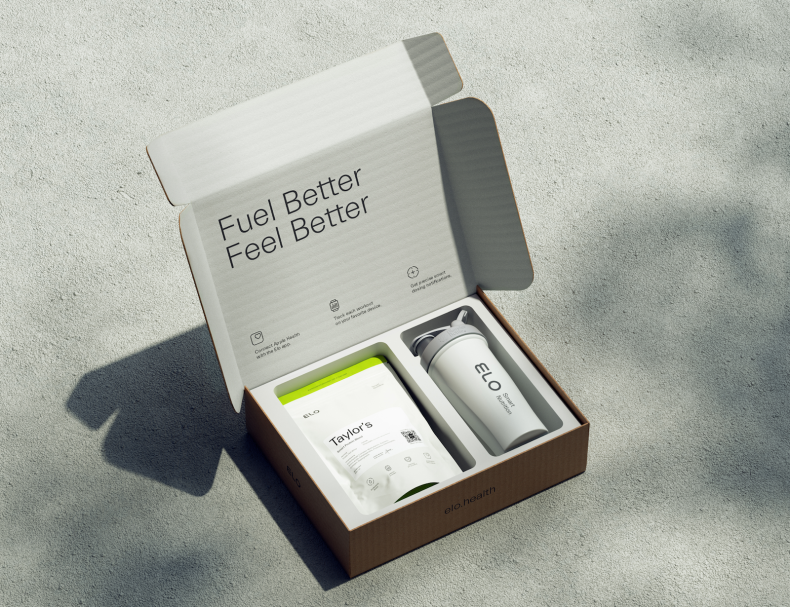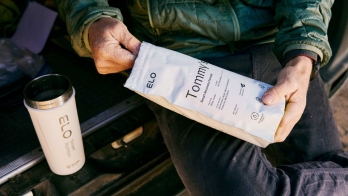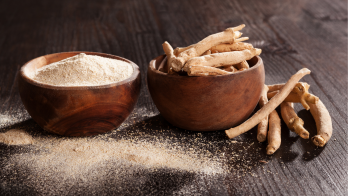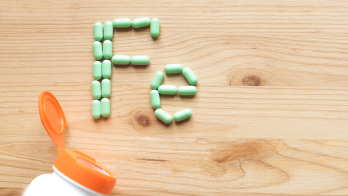How to build lean muscle for endurance athletes with exercise, supplements, and nutrition
If you’re an endurance athlete, you may want to consider how to build lean muscle to perform your best. From exercise to supplements, here’s how you can boost your muscle gains to go the extra mile.

In the world of endurance sports, the quest for a perfect balance between strength, speed, and stamina is a never-ending challenge. Building lean muscle is a crucial component of achieving peak performance for athletes competing in marathons, triathlons, and other endurance events. But are there any other benefits that come with having muscle mass, and how can you effectively develop it?
In this article, we are doing a deep dive into how to build lean muscle for endurance athletes. From resistance training to supplements, here’s how you can boost your muscle gains to go the extra mile.
But before we share some nutrition recommendations, let’s first start by understanding why muscle mass is important and how it can benefit endurance athletes.
Why is muscle mass important?
Muscle mass is essential for maintaining overall health and well-being, as it contributes to functional strength and quality of life. Increased muscle mass also aids in maintaining healthy body composition, reducing the risk of chronic diseases, supporting mobility and balance, and promoting independence in daily activities, especially as you age. Furthermore, studies have also found that muscle mass may help prevent injury, increase bone density, boost metabolic rate, and help maintain overall mental well-being and cognitive function [ 1 2 3 4
While muscle mass is important for everyone, it’s especially vital for endurance athletes, as it provides the necessary strength and support for efficient, sustained movement over long distances. Additionally, increased muscle mass helps improve metabolic efficiency, allowing athletes to maintain optimal energy levels and delay the onset of fatigue, ultimately contributing to enhanced endurance capabilities.

Importance of protein for endurance athletes
Protein is crucial for endurance athletes due to its multifaceted role in promoting optimal performance and recovery, including the repair and growth of muscle tissue.
Endurance activities (such as long-distance running or cycling) place significant stress on the muscles, leading to micro-tears and cellular damage. Consuming adequate amounts of protein helps to repair this damage and maintain muscle mass, thus preventing injury and promoting overall strength [ 5
Does running build muscle?
Running at higher intensities (such as hill sprints or interval training) can build muscle and strength in the legs, as these activities incorporate elements of resistance [ 6
Here are some other benefits of strength training for runners.
May improve muscular balance.
Running predominantly targets the lower body and can create imbalances between the muscles used for propulsion and those responsible for stabilization. Strength training exercises that focus on the core, hips, and lower body (such as squats, lunges, and planks) can help correct these imbalances and provide a more stable foundation for running.
Can further develop power and speed.
By incorporating exercises that target the fast-twitch muscle fibers (such as plyometrics or high-intensity interval training), runners can improve their ability to generate force quickly, leading to more explosive starts and faster sprints.
Might improve overall muscle coordination.
As runners become stronger, their bodies learn to recruit muscles more efficiently, using less energy to perform the same movements. This increased efficiency allows runners to cover greater distances or maintain a faster pace with less perceived effort.
May help prevent injuries.
By strengthening the muscles, tendons, and ligaments surrounding joints, runners can better absorb the impact forces associated with running and reduce the likelihood of common overuse injuries such as stress fractures, shin splints, and plantar fasciitis.

How to build lean muscle
Building lean muscle requires a combination of proper nutrition, strength training, and recovery. To effectively build muscle, it’s important to prioritize consuming adequate protein, engaging in consistent resistance training, and allowing for sufficient rest and recovery. By striking the right balance between these elements, you can develop lean muscle mass while minimizing body fat accumulation.
How much protein to build muscle?
Protein intake is critical in building lean muscle, providing the essential amino acids required for muscle protein synthesis. The amount of protein needed to build muscle varies based on factors such as age, sex, weight, and activity level, but here are some general guidelines [ 7 8
Adults: 0.8-1.2 g/kg/day
Endurance athletes: 1.2-2 g of protein/kg of body weight/day, depending on training volume and intensity.
Additionally, studies show that consuming 20-25 g of high-quality protein immediately after exercise and at regular intervals throughout the day maximizes muscle protein synthesis and recovery [ 9
How much muscle can you gain in a month?
Experts suggest that most healthy individuals can gain 1-2 lbs of lean muscle mass per month [ 10
Best supplements for muscle growth
While there is no one-size-fits-all approach to muscle growth, several supplements have been widely studied and shown to be effective for enhancing muscle development when combined with regular strength training and a balanced diet. Here are some of the best-researched supplements for muscle growth.
Protein
Adequate protein intake
While you can get protein from dietary sources, protein supplements (like whey and plant-based protein powders) can also be effective in supporting muscle growth. Interestingly, research shows that whey protein may improve muscle strength and size in resistance-trained individuals [ 11 12

Elo Smart Recovery
Elo Smart Recovery is the world’s most personalized recovery product, offering a combination of high-quality protein, functional nutrient boosts such as super greens and turmeric, and real-time dosing recommendations tailored to your needs and workout.
Your unique Smart Recovery blend is determined using a combination of data from wearables and activity apps, dietary preferences, and goals. Your information is then matched with the latest scientific research to determine a blend of ingredients that both maximizes post-workout recovery and supports your health goals. Learn more about how it can enhance your recovery
Try out Smart Protein today and get 30% off your first month with code TRY30
Creatine
Creatine 13
You can get all the creatine you need from what your body naturally produces and through some key dietary sources (such as fish, meat, and other animal products). However, if you lift extremely heavy weights, participate in high-intensity workouts, or eat a plant-based diet, you may want to consider a creatine supplement since studies have found that supplementation is associated with significant improvements in muscle strength, power, and lean body mass [ 14
Beta-alanine
Beta-alanine is a non-essential amino acid that has been shown to improve muscle endurance and reduce fatigue during high-intensity exercise. Studies found that beta-alanine supplementation improved exercise performance, particularly in activities lasting 1 to 4 minutes [ 15
Branched-chain amino acids (BCAAs)
BCAAs (such as leucine, isoleucine, and valine) are essential amino acids that play a role in muscle protein synthesis and recovery. Research has found that BCAA supplementation can reduce muscle soreness and improve recovery following exercise, which may contribute to muscle growth over time [ 16

Meal plan for muscle gain
A meal plan for muscle gain should prioritize a balance of high-quality protein sources, complex carbohydrates, healthy fats, and a variety of fruits and vegetables. Here is a sample one-day meal plan for muscle gain.
Breakfast:
3-egg omelet with spinach, tomatoes, and 1/4 cup shredded cheese
1 slice of whole-grain toast with 1 tbsp natural peanut butter
1 cup mixed berries (blueberries, raspberries, strawberries)
1 cup green tea
Mid-morning snack:
1 medium apple
1 oz (28 g) almonds or mixed nuts
Lunch:
4 oz grilled chicken breast
1 cup quinoa or brown rice
1 cup steamed broccoli or green beans
Mixed green salad with cherry tomatoes, cucumber, shredded carrots, and 2 tbsp vinaigrette dressing
Mid-afternoon snack:
1 cup Greek yogurt (unsweetened)
1 tbsp honey
1/4 cup granola
1 tbsp chia seeds or ground flaxseed
Dinner:
6 oz baked salmon or tofu
1 medium baked sweet potato
1 cup steamed asparagus or Brussels sprouts
1/4 medium avocado, sliced
Evening snack (optional):
1 scoop whey protein powder (or plant-based alternative) mixed with water or almond milk
1 small banana
Disclaimer: This plan is designed for someone with moderate physical activity levels; however, individual needs may vary based on factors such as age, gender, weight, and exercise intensity. Consult with a healthcare professional or registered dietitian before implementing any meal plan.
Summary
Research continues to show that muscle mass plays a large role in athletes looking to achieve peak performance. From a reduced risk of injury to a delayed onset of fatigue, there are many reasons why muscle mass is beneficial.
While there is no one-size-fits-all when it comes to muscle growth, it’s important to prioritize nutrition (especially from protein and supplements), consistent resistance training, and sufficient rest and recovery.
Disclaimer: The text, images, videos, and other media on this page are provided for informational purposes only and are not intended to treat, diagnose, or replace personalized medical care.
Key takeaways
Studies have found that muscle mass may help prevent injury, improve sports performance, increase bone density, contribute to metabolic rate, and help maintain overall mental well-being and cognitive function [
1
,2
,3
,4
].Protein intake is critical in building lean muscle, as it provides the essential amino acids required for muscle protein synthesis.
Experts suggest that most healthy individuals can gain 1-2 lbs of lean muscle mass/month [
10
].While there is no one-size-fits-all approach to muscle growth, certain supplements (like
Elo Smart Protein
, creatine, BCAAs, and beta-alanine) have been found to be effective in enhancing muscle development.
References
McPherron, A. C., Guo, T., Bond, N. D., & Gavrilova, O. (2013). Increasing muscle mass to improve metabolism. Adipocyte, 2(2), 92–98.
https://doi.org/10.4161/adip.22500
Suchomel, T. J., Nimphius, S., & Stone, M. H. (2016). The Importance of Muscular Strength in Athletic Performance. Sports medicine (Auckland, N.Z.), 46(10), 1419–1449.
https://doi.org/10.1007/s40279-016-0486-0
Sutter, T., Toumi, H., Valery, A., El Hage, R., Pinti, A., & Lespessailles, E. (2019). Relationships between muscle mass, strength and regional bone mineral density in young men. PloS one, 14(3), e0213681.
https://doi.org/10.1371/journal.pone.0213681
Sui, S. X., Williams, L. J., Holloway-Kew, K. L., Hyde, N. K., Leach, S., & Pasco, J. A. (2022). Associations Between Muscle Quality and Cognitive Function in Older Men: Cross-Sectional Data From the Geelong Osteoporosis Study. Journal of clinical densitometry : the official journal of the International Society for Clinical Densitometry, 25(2), 133–140.
https://doi.org/10.1016/j.jocd.2021.03.007
Pasiakos, S. M., McLellan, T. M., & Lieberman, H. R. (2015). The effects of protein supplements on muscle mass, strength, and aerobic and anaerobic power in healthy adults: a systematic review. Sports medicine (Auckland, N.Z.), 45(1), 111–131.
https://doi.org/10.1007/s40279-014-0242-2
Vikmoen, O., Ellefsen, S., Trøen, Ø., Hollan, I., Hanestadhaugen, M., Raastad, T., & Rønnestad, B. R. (2016). Strength training improves cycling performance, fractional utilization of VO2max and cycling economy in female cyclists. Scandinavian journal of medicine & science in sports, 26(4), 384–396.
https://doi.org/10.1111/sms.12468
Baum, J. I., Kim, I. Y., & Wolfe, R. R. (2016). Protein Consumption and the Elderly: What Is the Optimal Level of Intake?. Nutrients, 8(6), 359.
https://doi.org/10.3390/nu8060359
Nutrition and athletic performance. (2016). Medicine & Science in Sports & Exercise, 48(3), 543–568.
https://doi.org/10.1249/mss.0000000000000852
Moore, D. R., Camera, D. M., Areta, J. L., & Hawley, J. A. (2014). Beyond muscle hypertrophy: why dietary protein is important for endurance athletes. Applied physiology, nutrition, and metabolism = Physiologie appliquee, nutrition et metabolisme, 39(9), 987–997.
https://doi.org/10.1139/apnm-2013-0591
Rogers, P. (2022, September 30). Figure out how long does it take to build muscle. Verywell Fit. Retrieved March 24, 2023, from
https://www.verywellfit.com/how-much-muscle-in-a-month-3498519
Carbone, J. W., & Pasiakos, S. M. (2019). Dietary Protein and Muscle Mass: Translating Science to Application and Health Benefit. Nutrients, 11(5), 1136.
https://doi.org/10.3390/nu11051136
Park, Y., Park, H. Y., Kim, J., Hwang, H., Jung, Y., Kreider, R., & Lim, K. (2019). Effects of whey protein supplementation prior to, and following, resistance exercise on body composition and training responses: A randomized double-blind placebo-controlled study. Journal of exercise nutrition & biochemistry, 23(2), 34–44.
https://doi.org/10.20463/jenb.2019.0015
Creatine & Creatine supplements: What is creatine, are supplements safe. Cleveland Clinic. (n.d.). Retrieved March 24, 2023, from
https://my.clevelandclinic.org/health/articles/17674-creatine-and-creatine-supplements
Wax, B., Kerksick, C. M., Jagim, A. R., Mayo, J. J., Lyons, B. C., & Kreider, R. B. (2021). Creatine for Exercise and Sports Performance, with Recovery Considerations for Healthy Populations. Nutrients, 13(6), 1915.
https://doi.org/10.3390/nu13061915
Trexler, E. T., Smith-Ryan, A. E., Stout, J. R., Hoffman, J. R., Wilborn, C. D., Sale, C., Kreider, R. B., Jäger, R., Earnest, C. P., Bannock, L., Campbell, B., Kalman, D., Ziegenfuss, T. N., & Antonio, J. (2015). International society of sports nutrition position stand: Beta-Alanine. Journal of the International Society of Sports Nutrition, 12, 30.
https://doi.org/10.1186/s12970-015-0090-y
Weber, M. G., Dias, S. S., de Angelis, T. R., Fernandes, E. V., Bernardes, A. G., Milanez, V. F., Jussiani, E. I., & de Paula Ramos, S. (2021). The use of BCAA to decrease delayed-onset muscle soreness after a single bout of exercise: a systematic review and meta-analysis. Amino acids, 53(11), 1663–1678.
https://doi.org/10.1007/s00726-021-03089-2







